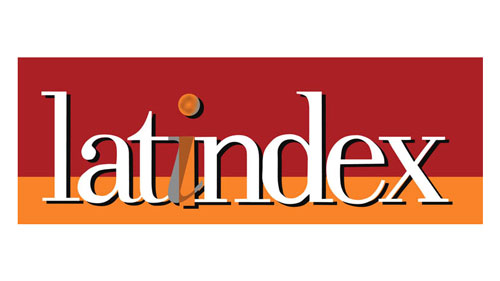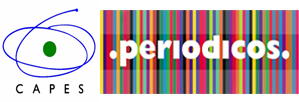Pronunciation intelligibility in Brazilian learners’ English and listeners’ threshold
DOI:
https://doi.org/10.26512/rhla.v16i2.7429Keywords:
pronunciation intelligibility. listeners’ threshold. Brazilian learnersAbstract
This article focuses on issues related to the role played by the listeners as evaluators of L2 learners’ pronunciation intelligibility. First, I discuss listeners’ threshold of intelligibility and listener variables. Linguistic and non-linguistic variables are identified. Then, I report on the qualitative results of an experimental study, whose listeners’ thresholds influenced their evaluations about the intelligibility of Brazilian learners’ pronunciation. Finally, I conclude with implications of the present discussion for future pronunciation intelligibility studies involving Brazilians learners’ English.
Keywords: pronunciation intelligibility. listeners’ threshold. Brazilian learners.
Resumo
Este artigo focaliza aspectos relacionados aos ouvintes que atuam como avaliadores da inteligibilidade da pronúncia de aprendizes de uma língua estrangeira. Primeiro, o limiar de inteligibilidade de ouvintes e suas variáveis são discutidas. Variáveis linguísticas e não linguísticas são identificadas. Em seguida, resultados qualitativos de um estudo experimental, cujo limiar de inteligibilidade dos ouvintes influenciou suas avaliações da inteligibilidade da pronúncia de aprendizes brasileiros de inglês, são relatados. Finalmente, as implicações da presente discussão para estudos em inteligibilidade de pronúncia envolvendo aprendizes brasileiros de inglês são apresentadas.
Palavras-chave: inteligibilidade de pronúncia. limiar do ouvinte. aprendizes brasileiros.
Downloads
References
CATFORD, John. Intelligibility. ELT Journal, v. 1, n. 1, p. 7-15, 1950.
CRUZ, Neide. Pronunciation intelligibility in spontaneous speech of Brazilian learners’ English. 241f. Tese (Doutorado em Inglês) ”“ Centro de Comunicação e Expressão, Universidade Federal de Santa Catarina, Florianópolis, 2004.
CRUZ, Neide. The (un)intelligibility of “comfortable” produced by a Brazilian speaker of English. Speak out! Newsletter of the IATELFL Pronunciation SIG, v. 33, p. 9-13, 2005.
DERWING, Tracey; MUNRO, Murray. Accent, intelligibility, and comprehensibility. Studies in Second Language Acquisition. v. 19, p. 1-16, 1997.
DERWING, Tracey; MUNRO, Murray. Second language accent and pronunciation teaching: a research-based approach. TESOL Quarterly, v. 39, p. 379”“797, 2005.
DETERDING, David. Listening to Estuary English in Singapore. TESOL Quarterly, v. 39, p. 425”“440, 2005.
ENSZ, Kathleen. French attitude toward typical speech errors of American speakers of French. The Modern Language Journal, v. 66, n. 2, p. 133-139, 1982.
FIELD, John. The fuzzy notion of ‘intelligibility’: a headache for pronunciation teachers and oral testers. Speak out! Newsletter of the IATELFL Pronunciation SIG, Special Issue, p. 35-38, 2003.
GASS, Susan; VARONIS, Evangeline. The effect of familiarity on the comprehensibility of nonnative speech. Language Learning, v. 34, n. 1, p. 65-89, 1984.
GONÇALVES, Alison. In search of speech intelligibility: the case of English high front vowels. 170f. Dissertação (Mestrado em Inglês) ”“ Centro de Comunicação e Expressão, Universidade Federal de Santa Catarina, Florianópolis, 2014.
GONÇALVES, Alison; SILVEIRA, Rosane. Intelligiblity research in Brazil: empirical findings and methodological issues. Horizontes de Linguística Aplicada. v. 14, n 1, p. 51-81, 2015.
JENKINS, Jennifer. Phonology of English as an international language: New models, new norms, new goals. Oxford: Oxford University Press, 2000.
KENWORTHY, Joanne. Teaching English pronunciation. London: Longman, 1987.
KIRKPATRICK, Andy; DETERDING, David; WONG, Jennie. The international intelligibility of Hong Kong English. World Englishes, v. 27, n. 3/4, p. 359”“377, 2008.
KOSTER, C; KOET, T. The evaluation of accent in the English of Dutchmen. Language Learning, v. 43, n. 1, p. 69-92, 1993.
MATSUURA, Hiroko; CHIBA, Reiko; FUJIEDA, Miho. Intelligibility and comprehensibility of American and Irish Englishes in Japan. World Englishes, vol 18, n. 1, pp. 49-62, 1999.
NELSON, Cecil. Intelligibility in World Englishes: theory and application. London: Routledge, 2011.
PICKERING, Lucy. Current research on intelligibility in English as a lingua franca. Annual Review of Applied Linguistics, v. 26, p. 219-233, 2006
RAJADURAI, Joanne. Intelligibility studies: a consideration of empirical and ideological issues. World Englishes, v. 26, n. 1, p. 87-98, 2007.
REIS, Felipe; CRUZ, Neide. (Un)intelligibility in the context of English as a lingua franca: a study with French and Brazilian speakers. Intercâmbio, v. XXII, 2010.
SCHADECH, Thaís. The production of word-initial / ï² / by Brazilian learners of English and the issues of comprehensibility and intelligibility. Dissertação (Mestrado em Inglês) ”“ Centro de Comunicação e Expressão, Universidade Federal de Santa Catarina, Florianópolis, 2013.
SMITH, Larry; BISAZZA, John. The comprehensibility of three varieties of English for college students in seven countries. Language Learning, v. 32, n. 2, p. 259-269, 1982.
SMITH, Larry; NELSON, Cecil. International intelligibility of English: directions and resources. World Englishes, v. 4, n. 3, p. 333-342, 1985.
TENCH, Paul. Pronunciation skill. London: Macmillan, 1981.
WARDA, Nejjari; GERRITSEN, Marinel; van der HAAGEN, Monique; KORZILIUS, Hubert. Responses to Dutch-accented English. World Englishes, v. 31, n. 2, p. 248”“267, 2012.
ZIELINSKI, Beth. The listener: no longer the silent partner in reduced intelligibility. System, v. 36, p. 69”“84, 2008.
Downloads
Published
How to Cite
Issue
Section
License
Articles published by the Journal Horizontes de Linguística Aplicada are licensed under a Creative Commons Attribution-NonCommercial-NoDerivatives 4.0 International License.
By publishing in Horizontes de Linguística Aplicada, authors agree to the transfer of economic copyright to the journal. Authors retain their moral rights, including the right to be recognized as the creators of the work.
Authors and readers are free to:
Share — copy and redistribute the material in any medium or format
Under the following terms:
- Attribution — You must give appropriate credit , provide a link to the license, and indicate if changes were made . You may do so in any reasonable manner, but not in any way that suggests the licensor endorses you or your use.
- NonCommercial — You may not use the material for commercial purposes .
- NoDerivatives — If you remix, transform, or build upon the material, you may not distribute the modified material.
- No additional restrictions — You may not apply legal terms or technological measures that legally restrict others from doing anything the license permits.





